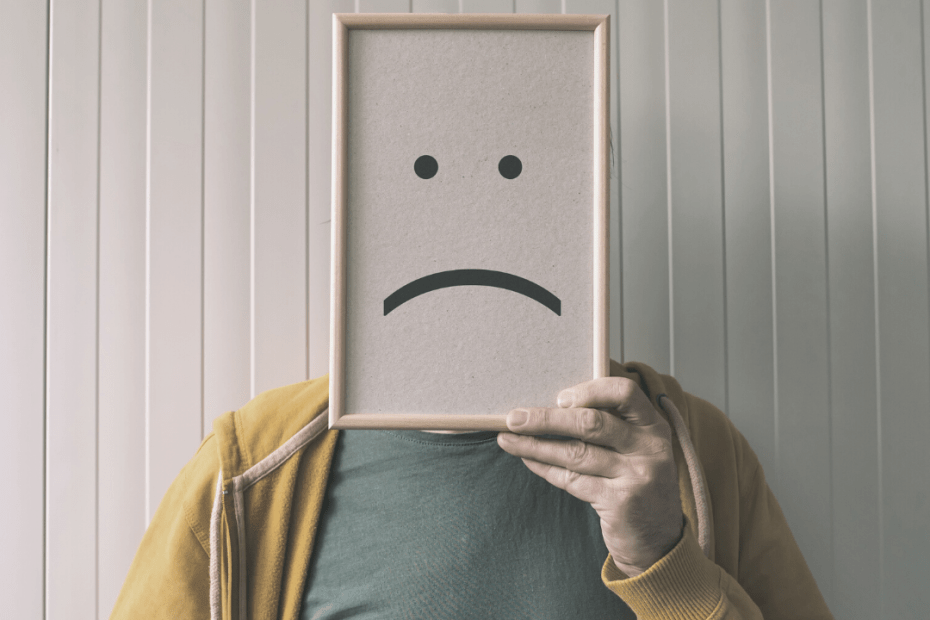The rise of the global pandemic of Covid-19 has seen many people struggle with emotional challenges. It is an unprecedented time. We were thrust into seclusion, working from home, balancing the delicate scale of everyday life and staying safe. This has led to many people questioning their place in society or at home. During the height of the global pandemic life as we knew it, it has changed forever, and we had to adapt.
At first, you are feeling down, and refer to the incident as a “blue Monday”. Then it becomes more regular as “having the blues”. When do we cross the line from feeling “down” to having depression?
“Depression is being colorblind and constantly told how colourful the world is.”
– Atticus
Difference Between the Blues and Depression
Feelings of sadness, loneliness and grief are commonly experienced. It would be pretty odd if a person had no emotional response or reaction to something like a break-up. So it’s definitely normal to experience periods of short term “downs” or “blues”. This could be quite intense in certain cases but generally doesn’t last more than a couple of weeks or so.
Please note that that doesn’t mean that a person has stopped feeling emotional about the incident entirely. Rather that they are processing the experience and are getting better. Having the “blues” are never fun, but a person can function in their day to day life with sufficient self-care.
On the other hand, the moment a person’s life is overcome by intense sadness and feelings of invalidity (sometimes without any rhyme or reason), this can be a sign of clinical and undiagnosed depression lurking underneath the surface and online therapy sessions can be helpful in diagnosing as well as treating the condition.
Signs of Clinical Depression to Look Out for
The signs of the blues are considered a normal response as the human psyche finding a way to process negative experiences. The blues will leave one feeling sad, discouraged and even irritated. It might even lead to a full-blown Bridget Jones’ night in your pj’s eating ice cream mixed with vodka, but this is not a permanent state of being and these feelings tend to fade.
The signs of clinical depression on the other hand can be experienced completely unprovoked by external factors and can be quite confusing for the person afflicted as well as their loved ones. Depression can be deep-seated feelings of prolonged melancholy and can be associated with other symptoms.
These symptoms can interfere with your life and result in withdrawal and self-isolation. It’s important to remember that depression is widely recognised as a medical condition and should be treated as such. There are a variety of symptoms that could allude to you having clinical depression:
No light at the end of the tunnel
This is probably one of the most devastating symptoms of depression: the feeling of complete and utter hopelessness. If you can’t see the light at the end of the tunnel, or the solution to the problem why even keep trying? Once this feeling takes over and reaches its peak, we are usually faced with suicidal tendencies. If you start having any thoughts of self-harm, you need to speak to a professional as soon as possible and online therapy sessions can also help in working through these emotions.
Couldn’t be bothered
If you once loved certain activities and all of a sudden you just inexplicably lose interest something is wrong. This is not a normal response of someone losing interest over time and moving on to other hobbies or activities, but rather a complete disinterest that seems to come overnight.
A hop, skip and a jump away from hibernation
People struggling with depression experience inexplicable tiredness that doesn’t seem to go away no matter how long they sleep. And it’s not for a lack of trying. Those struggling with depression often sleep much more than usual. Not only do they struggle to get out of bed in the mornings, but they also start sleeping all throughout the day.
More than just a rapid heartbeat
The fast-pace of modern life and the immense pressures often lead to people experiences stress. But there’s a big difference between experiencing stress and suddenly suffering from almost debilitating anxiety that often goes hand-in-hand with panic attacks.
Saying no to lunch
Those suffering from depression have a loss of appetite. They will also display weight loss due to not eating.
Being on a rollercoaster ride
People with depression often experience uncontrolled and mismatched emotions. They might start crying at an ad that they’ve seen a million times before. Or they will overreact and become irate over the slightest of things. And your emotions can switch from one to the other in an instant. When you feel like you are on a rollercoaster ride of emotions that you have no control over, it’s time to speak to a professional. Online therapy sessions can be quite helpful here as well.
Seeking Help Online
One thing that proved invaluable during the onset of the pandemic was the accessibility of services available on the internet, from online grocery shopping, schooling, entertainment and even self-help options. The main objective of online therapy is to provide mental health support and services to anyone, at any time.
Online therapy is becoming a niche market and is being added to the collection of self-help books and audio traditionally found in shops. Online therapy sessions are available on a variety of platforms and can help you gain a new outlook and find a way forward.
Start your self-help journey with some honest introspection and admit to yourself that you need a new set of skills or professional expertise.
How Online Therapy Can Help
Studies suggest that online therapy can be just as effective as traditional methods of therapy. Besides that, it also holds many other benefits:
No commuting
There’s no need to make special arrangements at work and rush to get work done in order for you to get into a car, bus or train and spend time in traffic travelling to your therapist appointment. With online therapy sessions, there is no pressure on how to look and you can work right up to the minute of your appointment without the added stress of commuting. Saving time all around!
Could it be any more comfortable?
There is no dress code. You can sit in your pj’s with your favourite cup of hot chocolate and no one will judge you. Many people also feel more comfortable and safe opening up in their own and familiar environment.
Strictly confidential
Some are simply not comfortable and extremely private and would prefer that others not know that they are seeing a therapist. With online therapy sessions, there’s no need for anyone to know – not even those in your house, if you’d prefer to speak to someone in the privacy of your own room or study. Encryption technology is also used so that any online exchanges and data remain, private, safe and secure.
Saving money
Because you are not commuting you will be saving on various travel expenses – whether tube fare or petrol. If you are used to seeing someone at a clinic or in private practice the institution might have added admin fees or expensive overheads that they need to cover with the cost of a consultation. Online therapy removes all of those potential costs.
No restrictions
Having to go into yet another lockdown? No problem. This will have absolutely no impact on your session and won’t interrupt your therapy sessions since your therapist is only a WiFi signal away.
Flexibility
Your therapist will arrange your online therapy according to what is convenient for you. Feel more comfortable using FaceTime? Then they’ll make the session arrangements accordingly. Don’t know how to use Zoom? Then maybe it’s better that you use Skype. Whatever your preference or skill set, there is an online therapy method of communication that will work for you.
Whether you are just feeling down or blue and would like to talk to someone in order to work through certain emotions or deal with a certain situation/incident. Or whether you might suspect that you may be suffering from depression. Online therapy sessions will be able to help you process certain things as well as help with a formal diagnosis and recommendations in terms of psychiatrists that can prescribe medications in aid of your therapy sessions.
Whatever your needs, requirements or preferences, one of our friendly professionals will be more than happy to help. You can contact us via info@personalonlinetherapy.com or, alternatively, you can fill in the form below and we will contact you.

